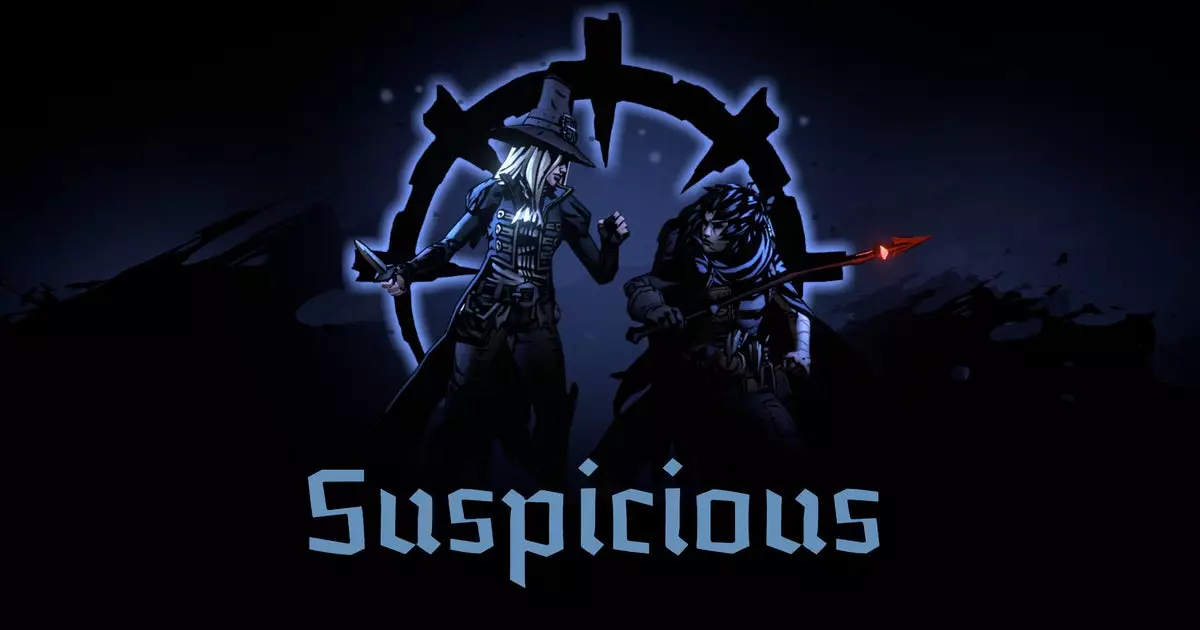In a significant development within the gaming industry, Behaviour Interactive, renowned for its hit title Dead By Daylight (DBD), has announced the acquisition of Red Hook Studios, the creative force behind the acclaimed Darkest Dungeon series. This transaction arrives on the heels of Behaviour’s recent restructuring efforts, which saw layoffs, game cancellations, and the shuttering of Midwinter Entertainment, a studio they had acquired just a short while ago. This strategic acquisition raises questions about the future of Red Hook and the implications for independent game development under the Behaviour umbrella.
At first glance, the idea of Red Hook remaining “a fully independent studio” under the allegorical roof of Behaviour raises eyebrows. What does this term mean in the context of creative autonomy and operational independence? The statement from Behaviour suggested a commitment to supporting Red Hook in their mission, but the actual delineation of that support remains ambiguous. While the familiarity between the two studios exists—both hailing from Canada and sharing a passion for horror-themed gaming—it is crucial to analyze how much “independence” Red Hook will retain in practical terms.
In a corporate environment where acquisitions can lead to significant changes in company culture and direction, the assurances offered about Red Hook’s independence must be scrutinized. The fear of corporate interference looms large, especially given Behaviour’s known history of leveraging existing horror motifs in their games. Could this lead to the dilution of what makes Red Hook’s titles unique?
A Shared Vision or Just a Strategic Play?
Behaviour CEO Rémi Racine emphasized the company’s goal to build a “library of similarly exceptional horror games” around Dead By Daylight. While this ambition sounds promising, one can’t ignore the possible implications of expanding their horror empire through acquisitions rather than nurturing organic growth. The choice to see Red Hook as a ‘child’ needing a ‘playmate’ feels more corporate than creative, hinting at a strategy that could undermine the very essence of what made both studios successful independently.
Perhaps more concerning for fans of Darkest Dungeon, there’s potential for behavioural cannibalism. DBD’s habit of appropriating characters from various horror franchises suggests that they might not hesitate to draw from Red Hook’s catalogue as well. In an industry often driven by profit, it raises the question of how long it will take before Red Hook’s unique horror elements are synthesized into the broader Behaviour franchise, potentially sacrificing the artistic integrity that has attracted fans in the first place.
Undoubtedly, Red Hook’s leaders have expressed enthusiasm about the synergies created through this acquisition. Co-founder Chris Bourassa remarked on the opportunities that come with being part of a larger entity, particularly in regard to financing and resource support. The studio is currently working on a significant expansion for Darkest Dungeon 2, one that could elevate it into the realm of a turn-based board game. However, this raises essential questions about the extent to which Behaviour will influence the creative direction of Red Hook’s projects.
While Bourassa notes the differing scale of operations propelling new possibilities, it remains to be seen how this synergy impacts the narrative and stylistic choices in future releases. Will Behaviour offer constructive support, or will it instead steer Red Hook toward more commercially viable but artistically diluted projects? Time will tell if the excitement surrounding this partnership translates into meaningful creativity without encroachment.
Ultimately, the acquisition of Red Hook by Behaviour Interactive embodies the complex interplay between corporate strategy and creative independence in today’s gaming landscape. While the potential for collaboration is enticing, the underlying concerns regarding artistic autonomy must not be overlooked. As both studios move forward in this partnership, an atmosphere of vigilance and scrutiny will be necessary from fans and industry watchers alike. Will Red Hook flourish within this new familial structure, or will it find itself overshadowed by its more prominent sibling? The coming months could provide pivotal insights into the future health of both brands, and whether the union generates groundbreaking horror gaming experiences or simply settles into a cycle of commodification.

